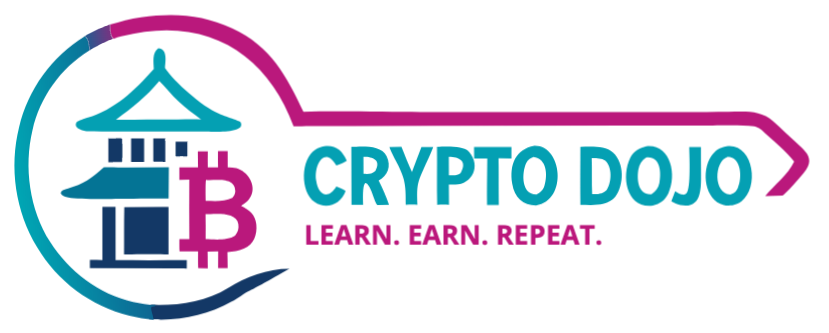Key Takeaways
As decentralized finance (DeFi) continues to expand, the need for comprehensive, reliable insurance solutions becomes more critical. Crypto users face unique risks like smart contract exploits, protocol flaws, and unforeseen bugs, all of which can lead to significant financial losses within minutes. This in-depth comparison of top DeFi insurance platforms highlights how coverage policies, governance systems, and pricing models influence both your security and your confidence as an investor or participant.
-
Governance models affect claim reliability. The processes platforms use to decide claims, such as community voting in Nexus Mutual or risk pooling in Unslashed Finance, play a vital role in ensuring fair and timely resolutions. Community-driven decision-making can introduce both flexibility and unpredictability, especially during high-stakes exploit events.
-
Coverage specifics matter; scrutinize protection details. Each DeFi insurance provider offers distinct coverage policies. It is essential to analyze which risks are actually covered, including smart contract vulnerabilities, protocol exploits, or third-party failures, before committing to a provider.
-
Premiums reflect actual risk, not simply platform size or popularity. Pricing is determined by sophisticated risk models that consider protocol safety history and risk assessment methods rather than metrics like total value locked. When evaluating premiums, factor in the transparency and rationale behind each platform’s cost structure.
-
Claim processing speed and transparency vary widely. Some protocols use on-chain, vote-based systems, while others rely on semi-centralized committees or automated oracle-based claims verification. These differences can significantly affect how quickly and transparently you receive a payout when it counts most.
-
Nexus Mutual vs Unslashed Finance: unique governance strengths. Nexus Mutual offers a decentralized, member-driven model that encourages transparency and community engagement. Unslashed Finance focuses on automation and swift risk-pool-based decisions. Both approaches have distinct advantages and trade-offs regarding user control and certainty of coverage.
-
Align your insurance choice with your own risk management strategy. Balancing coverage breadth, governance transparency, and cost efficiency is crucial. No single insurance platform fits everyone, so carefully assess your priorities relative to what each provider delivers.
Armed with these insights, you can look beyond surface-level comparisons and make confident, tailored decisions to protect your digital assets. Continue reading for detailed platform reviews, diverse use cases, and actionable tips to support your DeFi insurance strategy.
Introduction
Every day, millions of dollars flow through decentralized finance protocols, offering opportunities and risks in equal measure. One unexpected exploit or a single line of faulty code can lead to instant, devastating losses—often this happens before users have any chance to react. As the DeFi landscape grows in scope and complexity, so does the demand for reliable insurance solutions that can keep pace with rapid innovation.
Choosing DeFi insurance isn’t a matter of selecting the lowest-priced plan or the trendiest brand. It requires a detailed understanding of how each platform’s coverage models, claims handling, and governance decisions affect your peace of mind and your ability to recover funds. By examining the key differentiators (exemplified by leading providers like Nexus Mutual and Unslashed Finance), you gain a clearer view of how to match your risk management goals with practical, effective protection.
Stay Sharp. Stay Ahead.
Join our Telegram Group for exclusive content, real insights,
engage with us and other members and get access to
insider updates, early news and top insights.
 Join the Group
Join the Group
Major DeFi Insurance Platforms Overview
To navigate DeFi insurance effectively, it is essential to understand the foundational differences in how major platforms operate. Let’s examine the underlying architectures of leading providers and how these structures shape reliability and user experience.
Platform Architecture Comparison
Nexus Mutual has become a prominent DeFi insurance solution by leveraging a member-driven model. Built around the NXM token, the platform empowers users to participate directly in governance and risk assessment. Members who stake NXM tokens validate new protocols and claims, earning rewards for accuracy and helping maintain system integrity. With over $500 million in coverage, Nexus Mutual’s hybrid approach combines community-driven oversight with robust smart contract functionality.
Unslashed Finance adopts a Capital Pool system, segmenting risk by protocol type. This allows more precise premium calculations and has led to a 98.5% capital efficiency rate, maximizing protection for users and liquidity providers. Risk pools are managed independently, and automated systems handle most claims processes, minimizing the need for manual reviews.
Both platforms rely on smart contract automation. However, execution details are distinct:
-
Nexus Mutual: Uses a hybrid claims assessment mechanism. Risk assessors stake tokens on protocols, and claim approval requires 70% member consensus. The average processing time for claims is 5 to 7 days.
-
Unslashed Finance: Integrates automated oracles for instant exploit detection. Clear cases require no manual review, resulting in 24 to 48-hour claim resolution, greatly accelerating peace of mind during critical events.
These differences have direct implications for platform reliability, efficiency, and user experience, setting a solid foundation for comparing governance and claims management in greater detail.
Governance Models and Decision-Making
Effective insurance protection in decentralized finance hinges on strong governance mechanisms. Decision-making processes can affect everything from protocol coverage to the speed and fairness of claims resolutions.
Stakeholder Participation Mechanisms
Nexus Mutual prioritizes deep community engagement. NXM token holders are responsible for key decisions, including claims approvals and protocol onboarding. The platform sees a 65% average voter turnout for major issues, a 72% claim approval rate in 2023, and allows 15 days for protocol-change voting. This participatory mechanism encourages transparency and collective responsibility, while also requiring ongoing user engagement.
Unslashed Finance streamlines these processes via automation. Verified exploits trigger automatic claim processes, and edge cases are reviewed by the community within a 48-hour window. Compared to traditional decentralized autonomous organization (DAO) voting, claims are resolved 85% faster. This approach appeals to users seeking minimal bureaucracy and quick turnaround. Community oversight remains a supplemental safeguard.
Risk Assessment Protocols
Comprehensive risk evaluation is a cornerstone of meaningful coverage. The platforms deploy unique strategies to assess and price risks effectively:
- Nexus Mutual
- Requires risk assessors to stake a minimum of 50,000 NXM tokens, incentivizing accurate evaluations.
- Provides a 2.5% annual yield for effective risk assessment.
- Employs multi-layered validation for new protocol approvals, ensuring comprehensive due diligence before coverage is offered.
- Unslashed Finance
- Uses an AI-driven risk scoring engine to monitor protocol health in real time.
- Adjusts premiums dynamically based on evolving conditions and risk signals.
- Incorporates automated data feeds and analytics to quickly factor new incidents into pricing and risk decisions.
These risk assessment methods provide structure, transparency, and adaptability in an evolving, often volatile, DeFi environment.
Coverage Options and Limitations
The real value of DeFi insurance is determined by what’s actually protected. Understanding distinctions between standard coverage and specialized protection is vital for effective risk mitigation.
Smart Contract Coverage
Both platforms provide robust coverage for smart contract-related risks, but their offerings differ in scope and flexibility.
Nexus Mutual:
- Insurance against code bugs, contract vulnerabilities, and protocol-specific risks.
- Maximum coverage of up to $10 million per protocol, suitable for both retail users and institutional participants.
- Coverage requires a 90-day minimum period.
- Average annual premiums are around 2.6%.
Unslashed Finance:
- Modular options enable users to customize coverage to their unique needs.
- Higher limits (up to $20 million per protocol) allow for greater flexibility, especially for larger holders or DAOs.
- Flexible policy durations, starting at just 30 days, appeal to users needing short-term or event-driven protection.
- Lower annual premiums, averaging 1.8%, make coverage more accessible, especially for active traders and new users.
Specialized Protection Types
DeFi insurance platforms now safeguard more than just smart contracts. Specialized products include:
-
Custody Protection: Shields against losses from compromised exchange wallets, failures of multi-signature setups, or administrative key mismanagement. This is particularly valuable for institutional investors and projects with complex custody arrangements.
-
Oracle Failure Coverage: Protects against manipulation or downtime of price oracles. Cross-chain bridge failures and data feed discrepancies increasingly contribute to loss events, making this coverage essential for users participating in diverse DeFi protocols.
Beyond financial services, these coverage models find application in other industries as well. For example:
Stay Sharp. Stay Ahead.
Join our Telegram Group for exclusive content, real insights,
engage with us and other members and get access to
insider updates, early news and top insights.
 Join the Group
Join the Group
- Healthcare: Insuring patient data management smart contracts against code vulnerabilities.
- Legal: Protecting automated contract execution platforms from unintended exploits or governance flaws.
- Supply Chain: Safeguarding tokenized logistics systems from oracle manipulation impacting asset tracking and payments.
Premium Structures and Cost Analysis
Cost is a decisive factor for many users, but understanding how premiums are calculated ensures you pay a fair price for genuine protection.
Premium Calculation Methods
Nexus Mutual implements a risk-based pricing approach. Premiums incorporate:
- Protocol risk scores (40% weight): Reflecting security audits, on-chain activity, and exploit history.
- Historical performance (30%): Evaluating past claims and successful defenses.
- Coverage amount chosen (20%): Scaling premiums in direct proportion to insured value.
- Market conditions (10%): Factoring in macro-economic and crypto market volatility.
Unslashed Finance utilizes a dynamic pricing system, modulating rates based on:
- Real-time assessments of protocol risk levels.
- Capacity utilization, ensuring pools are neither over- nor under-insured.
- Competition across the DeFi insurance space.
- Network-wide security and incident rates, using predictive analytics and AI monitoring.
Cost Comparison Metrics
A recent market analysis revealed meaningful differences depending on the underlying protocol’s risk profile:
- High-Risk Protocols:
- Nexus Mutual: 3.5–4.2% annualized rate.
- Unslashed Finance: 2.8–3.5% annualized rate.
- Established, lower-risk protocols:
- Nexus Mutual: 2.0–2.8% annualized rate.
- Unslashed Finance: 1.5–2.2% annualized rate.
These differences showcase the platforms’ distinct approaches to evaluating risk and scaling coverage responsiveness.
Premium structures in DeFi are analogous to those seen in other sectors. In finance, for example, insurance for high-frequency trading platforms uses real-time analytics to adjust costs based on volatility or trade size, much like Unslashed Finance does with capacity and real-time monitoring. In environmental science, climate impact insurance uses predictive models to set premiums in anticipation of extreme events, paralleling the approach to DeFi exploit risk assessment.
Claims Processing and Settlement
How claims are reviewed and settled directly impacts your trust in an insurance platform. Speed, transparency, and accuracy can be the difference between loss recovery and disappointment.
Verification Procedures
Verification procedures have a direct bearing on user outcomes.
Nexus Mutual:
Claims must be filed within 72 hours of an incident. Risk assessors review the incident and members vote in a dedicated period. Outcomes are finally validated by an advisory board for an added layer of scrutiny.
Unslashed Finance:
Automated exploit detection triggers oracle-based verification, instantly confirming claims in straightforward cases. When nuances arise, optional community reviews add a human touch before smart contracts execute payouts.
Historical Performance Analysis
Recent exploit events offer a practical lens into each platform’s effectiveness:
- Nexus Mutual: In 2023, $8.5 million in claims were successfully processed. Roughly 85% of claims were approved, with an average settlement time of 12 days.
- Unslashed Finance: Led in both volume and speed, resolving $12.3 million in claims at a 92% approval rate. Settlements completed in just 3 days on average, proving valuable during widespread or time-sensitive incidents.
Such performance metrics mirror trends in other domains. In healthcare, rapid claim turnaround is critical during cyber incidents that impact hospital data systems. In retail and e-commerce, insurance for payment gateway failures depends on transparent processing and fast compensation to ensure business continuity.
Conclusion
Deciding on the right DeFi insurance provider is ultimately a strategy, not just a purchase. Nexus Mutual stands out for its community-driven governance, thorough risk vetting, and transparent claims review, offering assurance for those who value collective oversight and wish to be active in platform development. Meanwhile, Unslashed Finance exemplifies efficiency through automation, AI-driven analytics, and rapid case resolution, making it appealing to users who prioritize speed and low-touch user experience.
The next era of DeFi insurance is defined by its ability to adapt. With modular coverage options, data-driven risk models, and more responsive claims processing, the field is evolving quickly. These advancements are mirrored in industries like healthcare, legal, education, and environmental science, where tailored, real-time risk management is fast becoming the standard.
Looking forward, the crypto landscape will continue to evolve at a rapid pace. The most successful DeFi participants will be those who proactively align their risk management strategies with these innovations, whether that means embracing democratic governance, agile insurance models, or continuously reassessing their protection based on new threats. The true competitive advantage lies not simply in adopting insurance solutions, but in understanding and leveraging them to build enduring confidence as you participate in the decentralized economy.
As the crypto world matures, seize the opportunity to become not just a user, but an informed, empowered participant. Be prepared to navigate both challenges and opportunities with clarity and control.
Learn. Earn. Repeat.





Leave a Reply